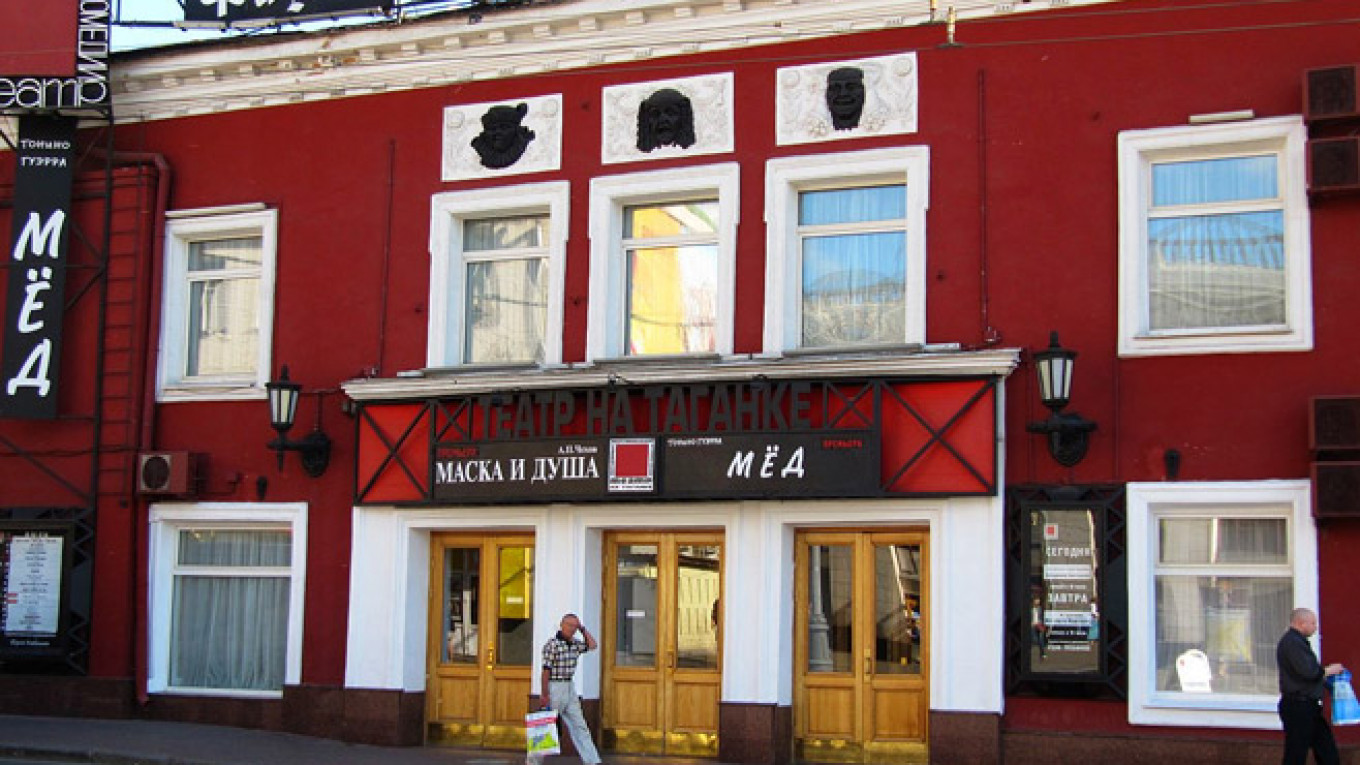Yury Lyubimov, who died last week at age 97, was the most influential cultural figure in Moscow in the late 1960s and early 1970s. All performances at his Taganka Theater were sold out, to get tickets you needed connections — or camp out overnight in front of the box office.
Actor and songwriter Vladimir Vysotsky was the biggest star of the star-studded troupe. When he wasn't on stage, you could still catch a glimpse of him in the audience, along with his stunning French wife, actress Marina Vlady. In the Soviet context, it was like sighting Mick Jagger.
A friend of the family, a young actor, used to smuggle me in through the back door and set me up with a friendly lighting technician. I saw most of Lyubimov's productions from her booth on the balcony, overlooking the small, cozy theater.
It was an exhilarating experience. Everyone sat on the edge of their seat, trying not to miss a word. Strangely, every scene in plays such as Moliere's "Tartuffe," Brecht's "Good Man From Szechwan" and Shakespeare's "Hamlet" somehow seemed both relevant to our Soviet reality and subversive.
The initiated weren't the only ones who cottoned on to it. Lyubimov's productions were closely scrutinized by censors and ideological watchdogs. The theater, which he created in 1964, was often on the verge of being closed.
But Lyubimov held on until the death of Vysotsky in 1980 and throughout Leonid Brezhnev's Era of Stagnation in the 1970s and 1980s. Apparently, he had powerful protectors, including KGB chief Yury Andropov. In any case, the Taganka's influence didn't reach beyond the intelligentsia, for whom it was a valve to let off steam.
In fact, theater was where some of the most interesting artistic work was created during the Soviet era. Several directors also became the focus of legal opposition. The Sovremennik theater started the trend in the 1950s, which was continued by Mark Rozovsky at the student theater of the Moscow State University and Anatoly Efros at the Malaya Bronnaya theater.
Why was the theater so important during the Soviet era? In my view, because the whole of Soviet history was a kind of theatrical production. Rallies, marches and street performances in the early revolutionary period were an integral part of the Bolshevik "new world," and many constructivist and futurist artists worked on their design and staging.
Lyubimov captured that street theater accurately in his staging of "Ten Days That Shook the World," American journalist John Reed's account of the Bolshevik takeover.
After Stalin destroyed the early Soviet avant-garde, the Soviet show became a bloody socialist-realist tragedy. By the 1970s, however, the open-ended building of communism became a predictable and boring performance. In that environment, the nonconformist theater exemplified by Lyubimov was like a breath of fresh air. Entering the Taganka was like shifting from the black-and-white part in the "Wizard of Oz" to Technicolor. And, like the wizard, Lyubimov showed us a different, wonderful world that was more real than the Soviet show we were forced to watch.
Back in the 1970s, that was how we imagined the real world if we could only rid ourselves of the senescent Communist leadership. Unfortunately, it didn't turn out that way. The show goes on, turning once again from a boring drama to a sordid tragedy. Lyubimov, who was born one month before the Bolshevik revolution, witnessed at the end of his life yet another transformation of this never-ending reality show.
Alexei Bayer, a native Muscovite, lives in New York. His detective novel "Murder at the Dacha" was published by Russian Life Books in 2013.
A Message from The Moscow Times:
Dear readers,
We are facing unprecedented challenges. Russia's Prosecutor General's Office has designated The Moscow Times as an "undesirable" organization, criminalizing our work and putting our staff at risk of prosecution. This follows our earlier unjust labeling as a "foreign agent."
These actions are direct attempts to silence independent journalism in Russia. The authorities claim our work "discredits the decisions of the Russian leadership." We see things differently: we strive to provide accurate, unbiased reporting on Russia.
We, the journalists of The Moscow Times, refuse to be silenced. But to continue our work, we need your help.
Your support, no matter how small, makes a world of difference. If you can, please support us monthly starting from just $2. It's quick to set up, and every contribution makes a significant impact.
By supporting The Moscow Times, you're defending open, independent journalism in the face of repression. Thank you for standing with us.
Remind me later.






